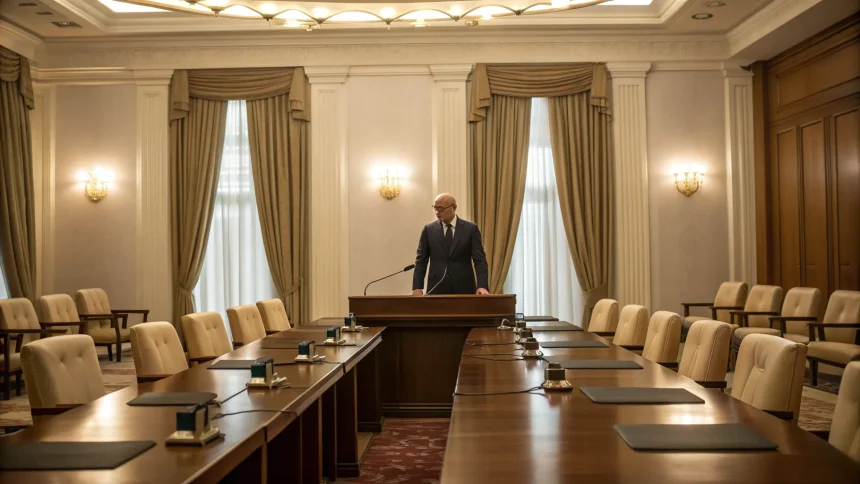Tom Barrack, the United States ambassador to Turkey who also serves as envoy to Syria, has issued an apology after using inappropriate language in a recent diplomatic context. The ambassador acknowledged that while he did not intend his remarks to be derogatory, he recognized that the terminology he used was unsuitable for his diplomatic position.
The Diplomatic Incident
The controversy arose when Ambassador Barrack used an unspecified term that raised concerns among diplomatic circles. In his subsequent statement, Barrack directly addressed the situation, stating that he “didn’t intend the term to be derogatory” but “admitted it was inappropriate.”
This incident comes at a sensitive time for U.S.-Turkey relations, which have faced various challenges in recent years. As both ambassador to Turkey and special envoy to Syria, Barrack occupies a critical diplomatic position that requires careful communication and cultural sensitivity.
Diplomatic Implications
Language choices by diplomatic representatives carry significant weight in international relations. Inappropriate terminology, even when unintentional, can create tensions between nations and undermine diplomatic efforts.
The State Department has established protocols for diplomatic communications, particularly for representatives serving in regions with complex geopolitical dynamics like Turkey and Syria. These guidelines emphasize the importance of cultural sensitivity and appropriate language use.
Foreign policy experts note that such incidents, while seemingly minor, can have ripple effects on bilateral relations, especially in regions where the United States is engaged in delicate negotiations or peacekeeping efforts.
U.S.-Turkey Relations Context
The United States and Turkey are NATO allies with a relationship that has been tested in recent years by disagreements over various issues including:
- Military operations in Syria
- Turkey’s purchase of Russian defense systems
- Human rights concerns
- Regional security cooperation
As ambassador, Barrack has been tasked with navigating these complex issues while maintaining productive diplomatic channels between Washington and Ankara.
His dual role as envoy to Syria adds another layer of complexity to his position, as he must also represent U.S. interests in the ongoing Syrian conflict, where Turkey is a key player with its own strategic objectives.
Response to the Incident
The State Department has not issued an official statement regarding Ambassador Barrack’s remarks. However, diplomatic sources indicate that such incidents are typically handled through internal channels, with guidance provided to representatives about appropriate communication practices.
Public apologies from diplomatic officials are relatively uncommon but demonstrate recognition of the importance of maintaining respectful dialogue in international relations.
The swift acknowledgment by Barrack suggests an attempt to address the situation before it could escalate into a more significant diplomatic issue between the United States and Turkey.
The incident highlights the ongoing challenges faced by diplomatic representatives who must carefully balance direct communication with cultural sensitivity in their host countries. As international relations become increasingly complex, the importance of appropriate diplomatic language remains paramount for effective foreign policy implementation.









